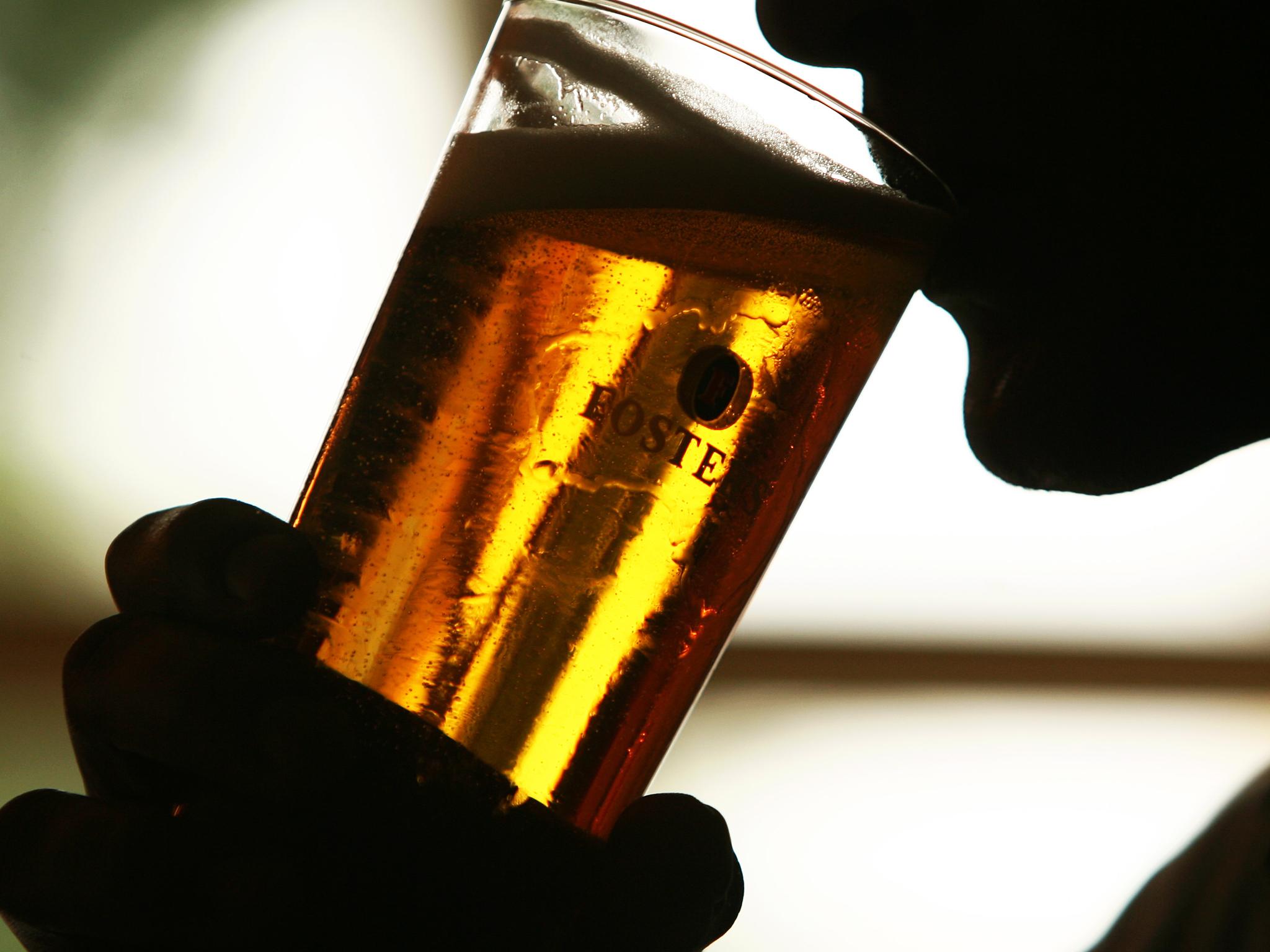When I was unemployed the best release from reality I had was in alcohol
The government's argument for deterrence is fatuous. To assume that those given to alcohol, cigarettes and drugs will stop should the cost be high enough is absurd

Your support helps us to tell the story
From reproductive rights to climate change to Big Tech, The Independent is on the ground when the story is developing. Whether it's investigating the financials of Elon Musk's pro-Trump PAC or producing our latest documentary, 'The A Word', which shines a light on the American women fighting for reproductive rights, we know how important it is to parse out the facts from the messaging.
At such a critical moment in US history, we need reporters on the ground. Your donation allows us to keep sending journalists to speak to both sides of the story.
The Independent is trusted by Americans across the entire political spectrum. And unlike many other quality news outlets, we choose not to lock Americans out of our reporting and analysis with paywalls. We believe quality journalism should be available to everyone, paid for by those who can afford it.
Your support makes all the difference.‘Alcohol makes other people less tedious’ as Christopher Hitchens said it in an article on the benefit of a diet heavy in grapes and grain. But it’s more than intolerable conversation that causes so many to not just drink - but to smoke, snort and swallow.
Five years after the financial crisis, huge swathes of Britain are suffering, millions are unemployed, and millions more drown in debt and exist on the bread line, the only source of succour, of solace, for many is at the bottom of a glass or the end of a cigarette. When I was unemployed the best release from reality I had was in alcohol. With as little as I had I always had enough for alcohol, regardless of how much it cost. If it was a case of a pint or the last bus, I would take the long walk home. As the cost of alcohol increased so did my early morning walks.
Rather than challenge the causes of such dissipation, the government argues for deterrence; a fatuous argument which assumes that those given to alcohol, cigarettes and drugs the most will likely stop should the cost be high enough. It is a false assumption, but one which this government and others will continue to regard as true.
Cameron may have copped out on minimum pricing, but the cost of alcohol in Britain has increased as wages have decreased with a unit now 43 per cent above the EU average.
Yet while the percentage of UK adults drinking alcohol weekly fell from 65 per cent to 58 per cent between 2005 and 2012, the sloshed and the soused still sit loudly in emergency rooms, soaked in alcohol, blood and piss.
According to NHS statistics, 36 per cent of those admitted for alcohol use were from the most deprived income group; alcohol abuse has not abated. How will the government likely react; raise the cost again, in the hope it will work this time round. It won’t.
The Irish government tried it with cigarettes. Taxes were raised year on year and the cost of cigarettes increased by 50 per cent between 2004 and 2010 (the cost of tobacco in Ireland is double the EU average).
Just as the devotion of Ireland’s Catholics can be deduced by how many are in the pews on a Sunday, the devotion of Irish smokers can be by how many are in pub smoking areas on a Saturday.
Even in the deepest depths of winter, there is a constant cacophony under shallow street awnings as Irish smokers grip their expensive alcohol (68 per cent above the EU average) in one hand while drawing on their cheap illegal cigarettes with the other.
Ireland is now a ‘haven for illegal cigarettes’ as smokers turn to criminal gangs to circumvent taxation. Efforts to curb smoking by increased cost failed (only the Greeks and Russians smoke more in Europe). Exorbitant cost, be it through increased taxation or minimum pricing, will not be enough to get the British to give up their sins, so what's left - possible prohibition.
Peter Hitchens argues for deterrence and put forth the view on Newsnight last year that the most punitive prohibition will deter drug use, and many agree with him. Well, no western country is more punitive in its approach to drug use than the United States.
The United States incarcerates more for drug offences(223,000) than any other country and imposes the most draconian of sentences upon them. In 2010, Patricia Spottedcrow, an Oklahoma mother of four, was sentenced to 12 years, for selling just $31 worth of cannabis, and yet in 2010 52 per cent of Americans aged 15 to 34 admitted to cannabis use, the highest in the world , whereas in Holland it was just 32 per cent. Prohibition hasn’t worked.
There’s no one simple and definite solution to substance abuse but the argument for deterrence is not one. If millions want to drink, smoke, snort and swallow then they will, whether it’s expensive or not, whether it’s legal or not. If the Government wants them to stop, it needs to give them greater reason to; a reality they don’t want release from.
Join our commenting forum
Join thought-provoking conversations, follow other Independent readers and see their replies
Comments